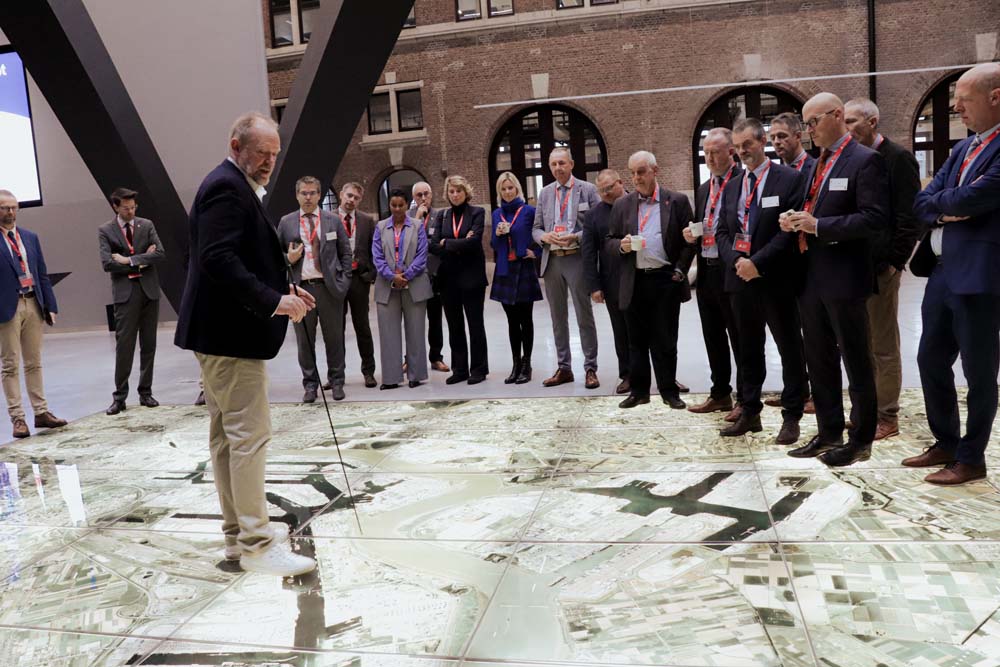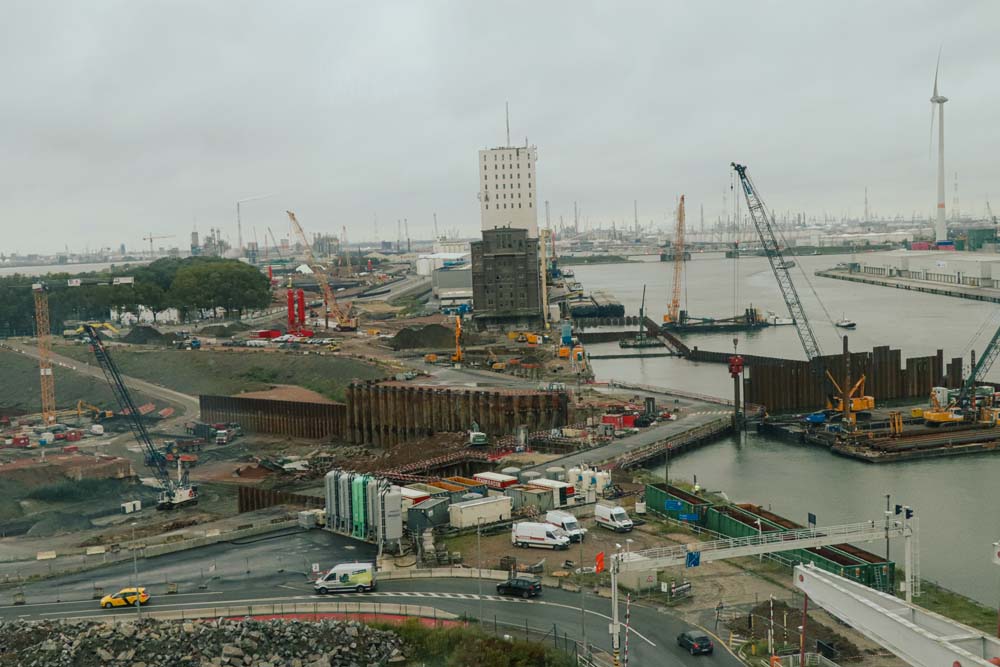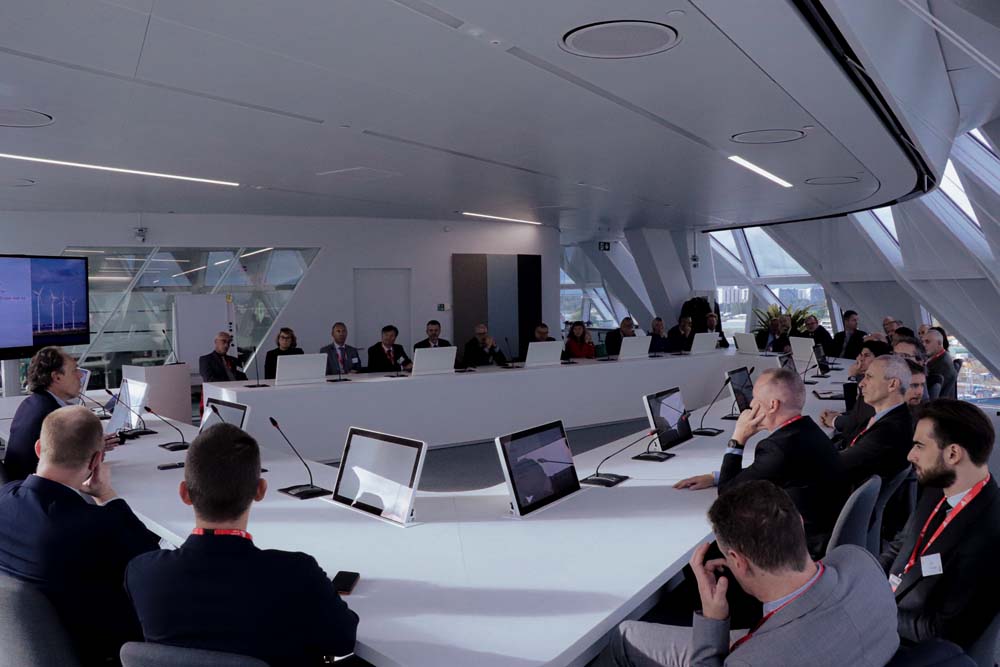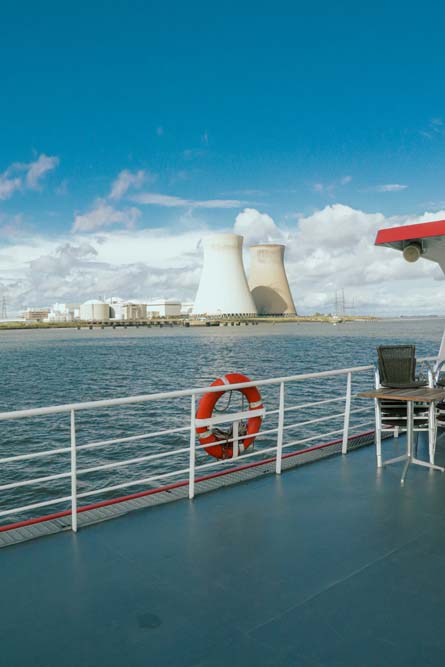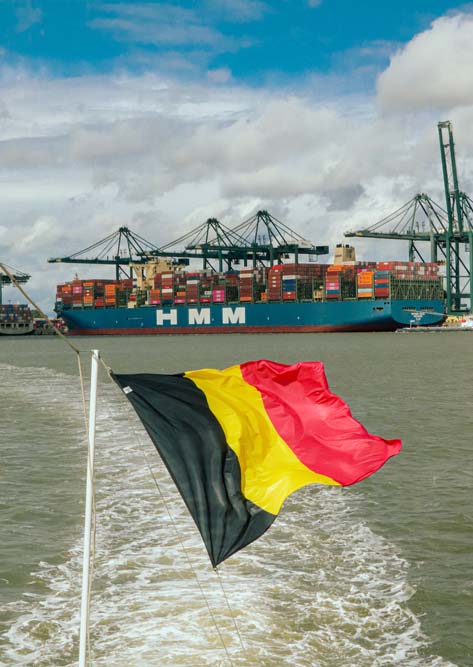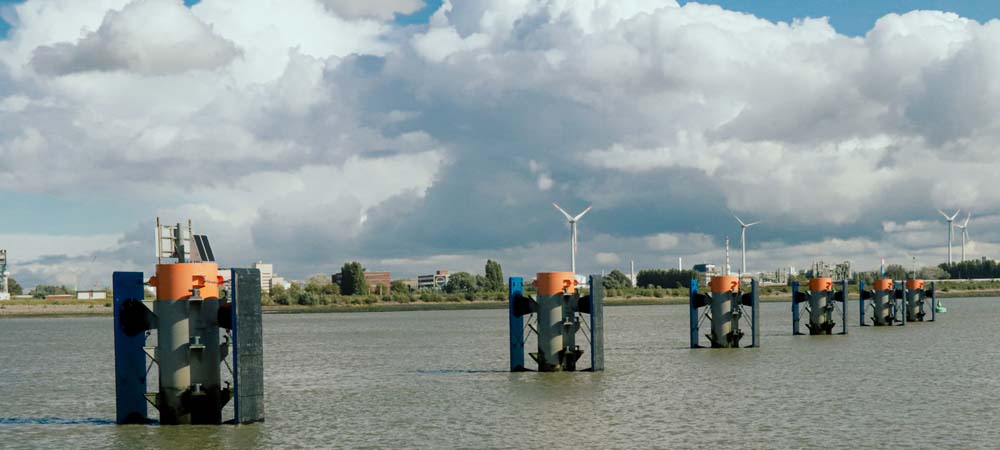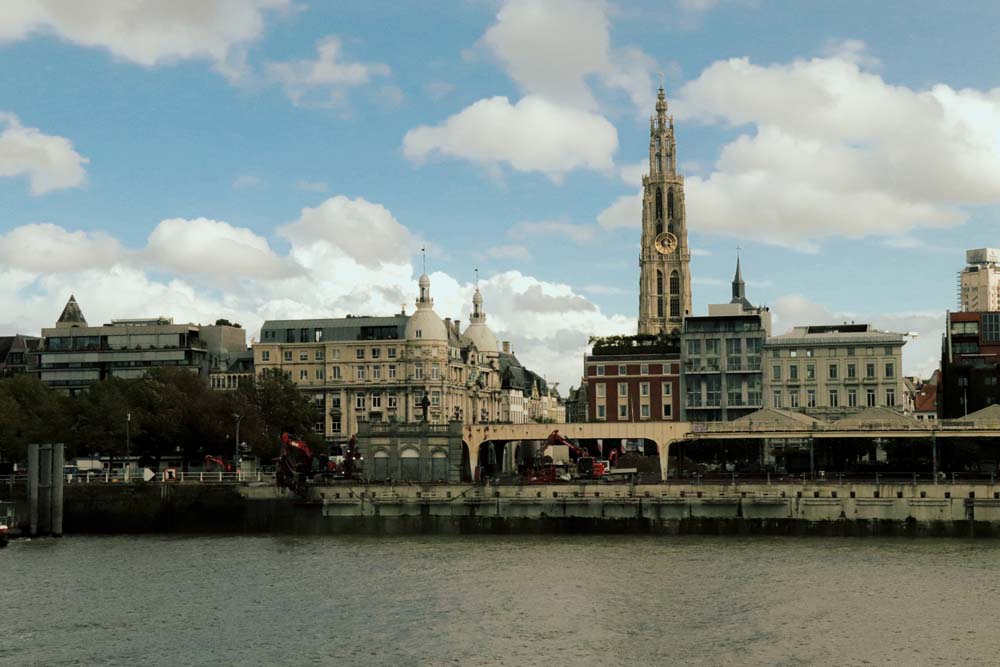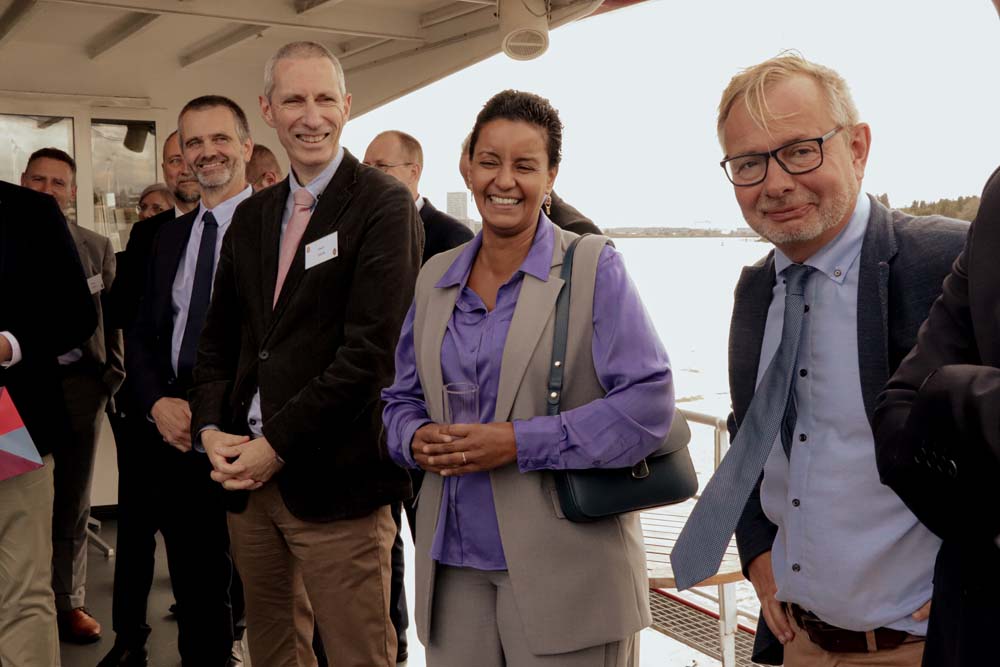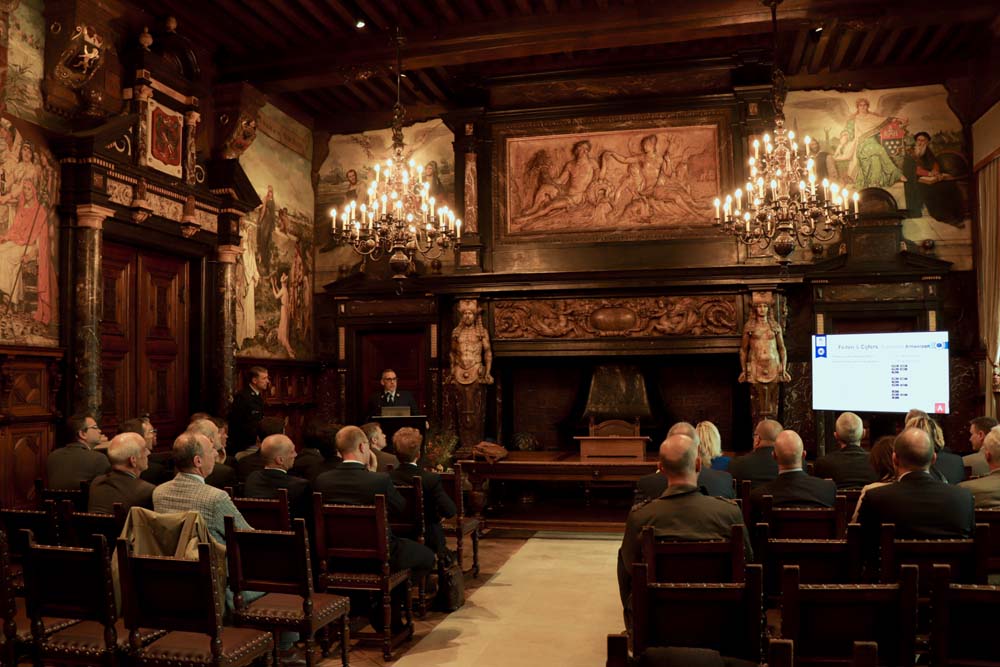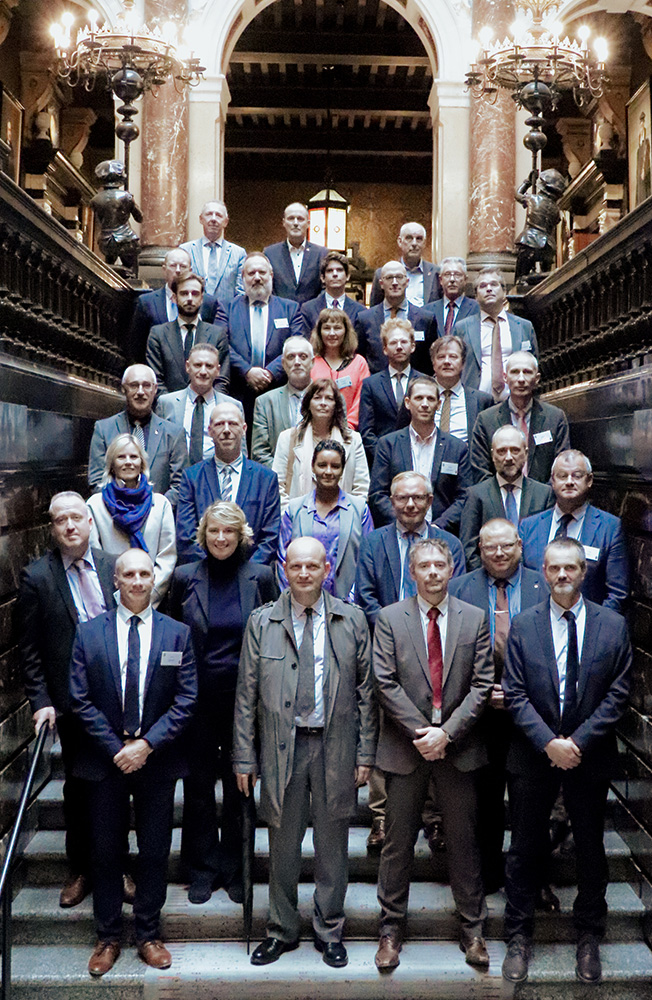Port of Antwerp: visit to a vital strategic asset for Belgium
The 19th session of the High Studies for Security and Defence kicked off with a fascinating visit to the Port of Antwerp, one of Belgium’s economic and strategic pillars. Ranked among the largest ports in Europe, it is far more than just a commercial hub: it is a critical infrastructure, essential for both the national economy and security.
A first-class infrastructure
The warm welcome by Mr. Tom Monballiu set the tone for a day of exploration. In his presentation, Mr. Jacques Vandermeiren, CEO of the Port of Antwerp-Bruges, emphasised the port’s strategic importance. Not only is it a vital centre for international trade, but it also plays a key role in the country’s security and defence policies. Antwerp handles an enormous flow of goods transiting daily through Europe, making it a crucial element of Belgium’s economy.
Critical infrastructure in action
The port of Antwerp stands out for the diversity and efficiency of its infrastructure. Mr. Niels Van Laer, Port Officer, highlighted the management systems and cutting-edge technologies used to ensure optimal security and smooth operations. Through concrete examples, participants gained insight into the challenges faced by managers of critical infrastructure, especially in terms of industrial and environmental risk management.
Cybersecurity: a major issue
In a global context where cyber threats are ever-present, the port of Antwerp has established strong defences to protect its systems. Mr. Jan Meuris, Security Analyst, presented the measures in place to counter cyberattacks. With a robust digital infrastructure and constant vigilance, the port ensures the protection of its strategic data and the continuity of its operations, even in the face of growing threats.
A rewarding experience: cruise on the Scheldt
Following these insightful presentations, participants boarded the Wilford for a cruise on the Scheldt River, exploring the many facets of the port and its facilities from the water. This cruise, accompanied by enthralling commentary, provided a closer look at the port’s infrastructure, showcasing Belgian expertise in logistics and port management.
Antwerp: the impact of the port on the city’s security
We continued our visit by heading to the heart of downtown Antwerp. Welcomed at the town hall, we had the opportunity to hear from local police representatives, who gave a detailed account of the port’s impact on urban security. They highlighted the specific security challenges associated with the port’s size and activity, particularly in combating organised crime, drug trafficking, and managing migration flows. The port, as an international hub, presents significant challenges for police forces, who must constantly adapt their strategies to ensure the safety of citizens while maintaining the smooth flow of trade. This session provided valuable insight into the connection between port security and urban peace.
The port’s importance for Belgium’s security policy
As a critical infrastructure, the port of Antwerp plays a key role in Belgium’s security and defence policy. Its ability to meet the country’s commercial needs while ensuring resilience against threats – whether physical or digital – makes it a vital strategic player. As such, the port is regularly involved in discussions and measures related to the national security strategy.
Join the next session of the High Studies for Security and Defence!
The visit to the Port of Antwerp was a fantastic introduction to the 19th session of the High Studies for Security and Defence. Upcoming seminars promise to be equally enriching, offering participants an in-depth understanding of current security and strategic issues.
Interested in joining this intellectual journey and gaining insight into tomorrow’s challenges? Registration for the 2025-2026 edition of the 4th cycle is now open! Do not miss this unique opportunity to participate in a prestigious programme that will deepen your knowledge in security and defence. Visit our website now for more information and to register.

